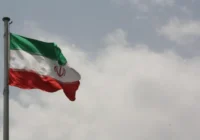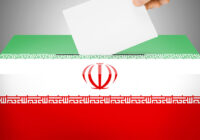There is a failure in the West to understand how the Kremlin interprets Washington’s basic foreign policy aims and intentions.
The telephone call between Russian President Vladimir Putin and US President Donald Trump on January 29 was the first official contact between the two leaders since Trump’s investiture. The Kremlin has welcomed Trump’s promises to mend ties with Moscow, which have been strained by the Ukrainian crisis, the war in Syria and allegations of Russian meddling in the US elections.
All of these points of contention to one side, one of the key objectives behind Trump’s outreach to Moscow is whether he can persuade Russia to turn away from Iran. In an article for Bloomberg, Eli Lake states: “The Romanovs humiliated Iran in the 19th century with punitive treaties. Last summer tensions rose briefly when the Russians acknowledged they were flying air missions out of Iran into Syria. Iranian mistrust of Russia can be exploited with deft diplomacy.”
While Iranian-Russian interests often diverge, this scenario is highly unlikely. It is true that Iran and Russia are strange bedfellows. Indeed, their cooperation can at best be qualified as a tactical short-term alliance, which manifests in fits and spurts where strategic interests converge. However, what binds them together in the long term is a shared perception of the contemporary world order. While both countries oppose a US-dominated post-Cold War set-up in the Middle East, which played out in the coordinated military campaign to prop up the regime of Bashar al-Assad, they are aligned on deeper historical, ideological and identity-related issues that trump (pardon the pun) geopolitical dynamics.
No degree of “deft diplomacy” can significantly alter Russia and Iran’s shared view that the Atlantic community seeks to impose a global monoculture, and to write a universal history à la Francis Fukuyama’s “end of history.” Both Russia and Iran reject the record of American hegemonic unilateralism and ethnocentrism that buttresses Samuel Huntington’s “clash of civilizations” thesis. The fact is that while geopolitical and strategic interests are clashing, civilizations are not, history is not ending, and there is very little universalism or homogenization in sight.
Agents of Subversion
Thus, while there may be concessions of a tactical or transactional nature in the future—such as the lifting of sanctions imposed after Russia’s annexation of Crimea or new arms-control agreements—it is unlikely that there will be a substantive breakthrough in Russia-US relations.
So where does the blockage lie? Following US policy in what Zbigniew Brzezinski termed the “global Balkans” in The Grand Chessboard: American Primacy and Its Geostrategic Imperatives, Russia has accused the US of fomenting velvet revolutions under the guise of promoting democracy in order to install Western-friendly leaders and restore American global preeminence. The Arab Spring and the unceremonious removal of former US ally Egyptian President Hosni Mubarak fueled the conviction that the US was a global agent of subversion. As a result, Russia’s bond with Iran, China and its Central Asian allies was strengthened.
The Kremlin also maintains that the West operates under the Eurocentric assumption that there is some sort of historical inevitability to a liberal society, grounded solely in European historical experience. Development and modernity are situated in a Western frame of reference, with a Western governing center. Putin rejects this and has reiterated that the country is pursuing an indigenous developmental trajectory—one that accommodates historical, national, revolutionary and local experience.
The West’s perceived homogenization campaign is ultimately interpreted by the Kremlin as a smokescreen for subtle forms of neo-colonial domination kick-started through the remote-controlled color revolutions—such as the Orange Revolution in Ukraine, Rose Revolution in Georgia and the Tulip Revolution in Kyrgyzstan—in Russia’s former sphere of influence.
Imminent Impasse
To this day, the Kremlin frames and perceives world conflicts as struggles between sovereignty and foreign intervention. This perception was made clear with Sergei Lavrov’s appearance before the United Nations General Assembly in 2105, when the Russian foreign minister asked for a declaration “on the inadmissibility of interference into domestic affairs of sovereign states and the non-recognition of coups d’état as a method for changing governments.”
Iran harbors a very similar perception. No stranger to the threat of regime change, Iran maintains that Washington’s ultimate goal is to unseat the Islamic regime. The Obama administration allayed some of these fears with the watershed nuclear deal in 2015 but, prior to this, the Bush administration’s neoconservative agenda heightened Iran’s suspicions.
The imminent impasse in a substantive Russian-American reset does not stem from the United States’ alleged refusal to take Moscow’s legitimate interests seriously. Rather it reflects a failure to understand how the Kremlin, in line with Iran and much of the rest of the world, interprets Washington’s basic foreign policy aims and intentions. Neither Russia nor Iran, for that matter, have been accommodated in what Richard Sakwa calls the hermetically enclosed world order and the reason for that is that neither country is willing to repudiate its own history. Until they do, they are outsiders.
What the West needs to take stock of is the fact that so-called democratic revolutions do not automatically beget democratic institutions. There is no global uniformity when it comes to institutional development. Russian development will remain an ongoing process of interaction between universal value patterns and specific cultural codes. As such, we need a more broadly pluralistic understanding of institutional development in order to achieve pluralism in the international system. Until Europe and the US refrain from imposing its singular vision of what the chess pieces look like, its map of the world order, a substantive upgrade in US-Russia relations is not on the horizon, and any alliance or thaw will be an uncomfortable one.
The views expressed in this article are the author’s own and do not necessarily reflect Fair Observer’s editorial policy.
Photo Credit: OlgaVolodina
Support Fair Observer
We rely on your support for our independence, diversity and quality.
For more than 10 years, Fair Observer has been free, fair and independent. No billionaire owns us, no advertisers control us. We are a reader-supported nonprofit. Unlike many other publications, we keep our content free for readers regardless of where they live or whether they can afford to pay. We have no paywalls and no ads.
In the post-truth era of fake news, echo chambers and filter bubbles, we publish a plurality of perspectives from around the world. Anyone can publish with us, but everyone goes through a rigorous editorial process. So, you get fact-checked, well-reasoned content instead of noise.
We publish 2,500+ voices from 90+ countries. We also conduct education and training programs
on subjects ranging from digital media and journalism to writing and critical thinking. This
doesn’t come cheap. Servers, editors, trainers and web developers cost
money.
Please consider supporting us on a regular basis as a recurring donor or a
sustaining member.
Will you support FO’s journalism?
We rely on your support for our independence, diversity and quality.







